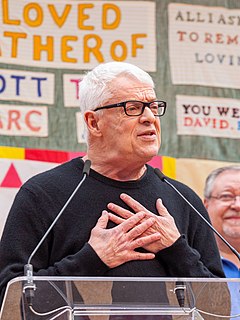A Quote by Edward Snowden
If the government or the parties won't address our needs, we will. It's about direct action, even civil disobedience.
Related Quotes
The state says: "Well, in order for it to be legitimate civil disobedience, you have to follow these rules." They put us in "free-speech zones"; they say you can only do it at this time, and in this way, and you can't interrupt the functioning of the government. They limit the impact that civil disobedience can achieve. We have to remember that civil disobedience must be disobedience if it's to be effective.
Direct action against the authority in the shop, direct action against the authority of the law, direct action against the invasive, meddlesome authority of our moral code, is the logical, consistent method of Anarchism. Will it not lead to a revolution? Indeed, it will. No real social change has ever come without a revolution. People are either not familiar with their history, or they have not yet learned that revolution is but thought carried into action.
Each of us contributes our own piece to the whole, each in our own way, each in our own time with the gifts and talents that are ours. You ask about possible vehicles for change: question, stand, speak, act. Engage in unruly behavior. Disturb the status quo. Take direct action. Commit civil disobedience. Make art. Build community. Dance. Sing. Farm. Cook. Create something beautiful and then give it away. Find your own monkey wrench and use it with the force of love. Sharpen your pencil. Vote.
Okay, so here's my question: When did civility become incompatible with protest? Why do some people consider civility an antonym - anathema, even - to political action and dissent? Because, and I'm raising my voice, it's not. Have we forgotten how Mahatma Gandhi used nonviolent civil disobedience to free India from British rule and inspire civil rights movements worldwide?
Liberal Democrats in government will not follow the last Labour government by sounding the retreat on the protection of civil liberties in the United Kingdom. It continues to be essential that our civil liberties are safeguarded, and that the state is not given the powers to snoop on its citizens at will.
It is important to remember that government interference always means either violent action or the threat of such action. The funds that a government spends for whatever purposes are levied by taxation. And taxes are paid because the taxpayers are afraid of offering resistance to the tax gatherers. They know that any disobedience or resistance is hopeless. As long as this is the state of affairs, the government is able to collect the money that it wants to spend.

































